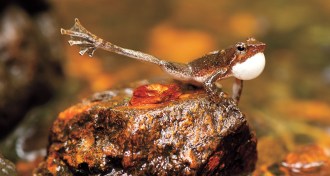Animals
-
 Animals
AnimalsSee your lawn through a bird’s eyes with YardMap
A new web tool lets you map your outdoor spaces and wildlife habitat, helping scientists understand how birds use urban and suburban spaces.
-
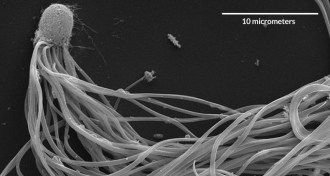 Animals
AnimalsAnt sperm swim as a team
The desert ant has sperm that swim in bundles for extra speed, perhaps increasing their likelihood of fertilizing an egg.
-
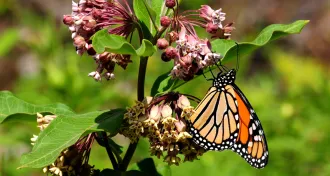 Animals
AnimalsWinter road salting reshapes next summer’s butterflies
Winter road salt treatments boost sodium in roadside plants and alter development for monarch butterflies.
By Susan Milius -
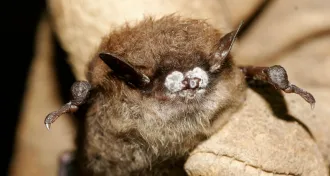 Animals
AnimalsDeadly bat disease gets easier to diagnose
White-nose syndrome in bats can be spotted with UV light, scientists have found.
-
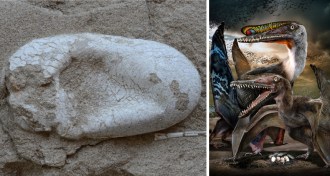 Paleontology
PaleontologyPreserved pterosaur eggs hint at reptile’s social life
The first 3-D pterosaur eggs, which were found in China, suggest that the flying reptiles laid eggs together.
By Meghan Rosen -
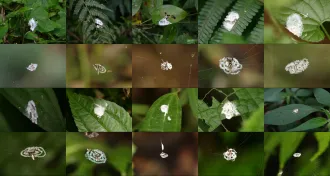 Animals
AnimalsBird dropping disguise proves to be effective camouflage
Several species of spiders and other animals mimic bird poop.
-
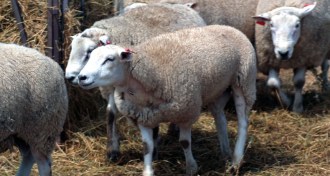 Genetics
GeneticsWool pulled from sheep’s genetic code
Sheep's genetic sequence, comprised of 2.6 billion base pairs, offers clues to how the animals maintain extra woolly coats and when they evolved from other livestock.
-
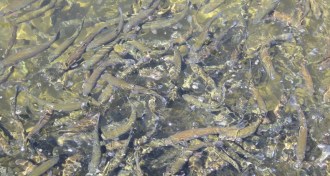 Life
LifeHatcheries’ metal can disrupt steelhead magnetic sense
Growing up in magnetic fields distorted by pipes and electronics confounds young fish’s inherited map sense.
By Susan Milius -
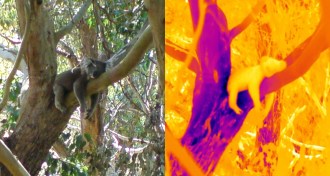 Animals
AnimalsWhy tree-hugger koalas are cool
Drooping against bark during a heat wave could save koalas from overheating.
By Susan Milius -
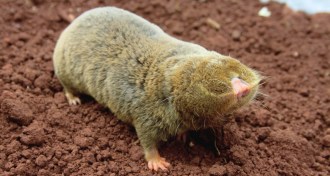 Genetics
GeneticsBlind mole-rats are loaded with anticancer genes
Genes of the long-lived blind mole-rat help explain how the animal evades cancer and why it lost vision.
-
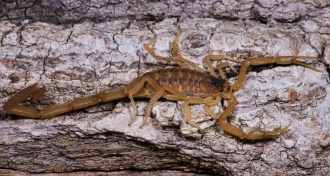 Animals
AnimalsBeware the pregnant scorpion
Female striped bark scorpions are pregnant most of the time. That makes them fat, slow and really mean.
-
